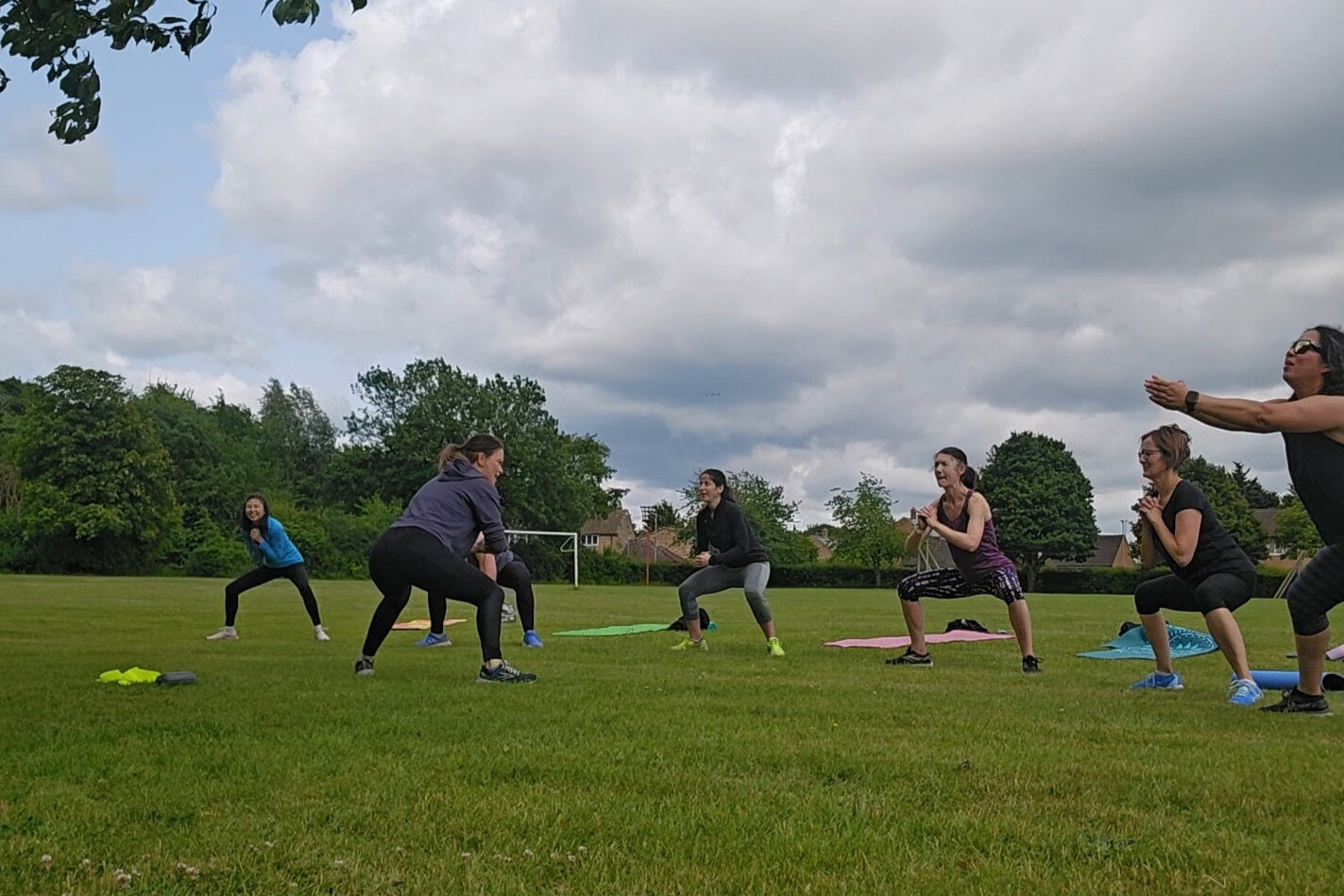Calorie vs. fasting confusion around fat loss for women
If you’ve ever tried to lose excess body fat, you’ve probably come across conflicting advice such as “try intermittent fasting”, “reduce calories”, or “cut carbohydrates”.
Information overload, diet trends and conflicting advice can be super confusing, and let’s be honest, who has the time or energy to sort through all the noise to find what actually works?
Over the past few years, the debate between fasting and calorie deficit has swung back and forth, from claims that fasting is the most effective way to lose fat to calorie restriction being promoted as the gold standard.
The reality is that both fasting and a calorie deficit can help with fat loss. However, how they influence your body, your health, hormones, and your individual results is different for women and depends greatly on your individual goals and lifestyle.
Female physiology adds another layer of complexity to the conversation. Our hormones, estrogen and progesterone, together with greater sensitivity to stress and the changing energy demands across the menstrual cycle, mean that women respond differently to dietary changes than men.
While there is no single approach that works for everyone, when it comes to sustainable fat loss in women, there’s mounting evidence that a combination of adequate nutrition, resistance training, sleep and stress management significantly improves health outcomes for women, including a reduction in harmful visceral fats (AKA, stubborn belly fat)
In this blog, we explore what the research and leading experts in female health and sports nutrition, such as Dr Mindy Pelz (Fast Like a Girl) and Dr Stacy Sims (Roar), reveal about fasting, calorie deficits, and the most effective and sustainable strategies for female fat loss over 35.
Understanding the relationship between energy balance and fat loss
Before diving into fasting or calorie control, it’s important to understand the fundamental principle that underpins every fat loss method: energy balance. *I highly recommend consulting your GP or healthcare practitioner before making any significant changes to your diet.
When you consistently consume more energy (calories) than your body uses, you’ll store the excess as fat. When you consume less energy (food) than your body needs, it draws on energy (glycogen and fat) stored in reserves for fuel.
This is known as a calorie deficit. and it’s the foundation of all successful fat loss approaches.
However, how you create a calorie deficit, whether through fasting, adjusting portion sizes, or increasing your activity levels, can influence your hormones, hunger, and ability to sustain a safe fat loss goal or maintenance approach long term.
It’s not just about eating less; it’s about finding a method that keeps your metabolism, mood, and energy levels stable throughout the day. For women, this balance is even more crucial because of the way our hormones interact with stress, sleep, and energy intake throughout the month.
Research consistently shows that fat loss occurs when a calorie deficit is achieved, regardless of whether it comes from fasting, calorie tracking, or intuitive eating (Hall et al., 2022; Trexler et al., 2014). What really matters is consistency, the right nutrition, and sustainability.
So, while fasting and calorie restriction may both work in theory, how your body responds and how you feel depends on your individual physiology, lifestyle, any medical conditions and stage of life.
What is fasting, and how does it work?
Fasting is simply the planned extension of time between meals. There are several common approaches, including:
- Time-Restricted Eating (TRE): for example, 16:8 or 14:10– fasting for 16 hours (preferably overnight) and eating as normal within an 8-hour window, during the day.
- Alternate-Day Fasting (ADF) – fasting or eating very little every other day.
- The 5:2 Diet – eating normally for five days and significantly reducing calories on two non-consecutive days.
Fasting naturally reduces overall calorie intake and, when done correctly, can help improve insulin sensitivity, blood sugar control and inflammation (Varady et al., 2023; Sutton et al., 2018).
However, fasting is not simply about skipping breakfast. As Dr Mindy Pelz explains in Fast Like a Girl (2023), “Fasting for women must be cyclical, flexible and in sync with our hormones, not against them.”
Mindy highlights that fasting can be beneficial during certain stages of the menstrual cycle, particularly the follicular and ovulatory phases, but may increase cortisol and reduce recovery if overused during the luteal or menstrual phases.
For example, adding more complex carbohydrates to your diet and reducing your fasting window to 12:14 hours can help increase muscle performance and endurance during the Luteal Phase of your menstrual cycle (10 days before your period)
Fasting and its impact on female hormones
For women, stress and fasting are closely linked, as both can elevate cortisol, a key stress hormone that influences fat storage, sleep quality and appetite regulation.
Dr Stacy Sims highlights in her book ROAR and through her research on female athletes that:
“Women are not small men. Our fuel needs, hormonal responses and recovery cycles are different.”
Her studies demonstrate that women, particularly those who are active or training regularly, benefit most from maintaining stable energy availability, especially around exercise, to protect muscle mass, mood and menstrual health.
Recent research supports this understanding.
- Stekovic et al. (2023) found that women experience more pronounced metabolic and hormonal changes during fasting compared with men.
- Hutchison et al. (2024) reported that prolonged fasting (more than 16 hours) can alter reproductive hormone levels in premenopausal women.
- Mero et al. (2024) linked frequent or extended fasting with increased cortisol and reduced thyroid activity in physically active women.
In summary, fasting can be effective for fat loss, but it should always be adapted to your body, your training demands and your menstrual cycle. A flexible, hormone-aware approach will always deliver better long-term results than one based on restriction or deprivation.
Calorie deficit, the foundation of fat loss
At its simplest, a calorie deficit occurs when you consume fewer calories than your body needs for daily energy expenditure. When this happens consistently, the body begins to use stored fat as fuel. It sounds straightforward, but maintaining that balance in a healthy, sustainable way is where many women struggle.
A moderate calorie deficit, around 10 to 20 per cent below maintenance levels, is the most effective approach for long-term fat loss. This allows you to lose fat gradually, while supporting energy, hormonal balance and performance.
Pairing a calorie deficit with strength training and adequate protein intake helps to preserve lean muscle, maintain metabolic rate and improve body composition. This is particularly important for women, as a loss of muscle mass can make it harder to maintain weight loss and support hormone health.
Dr Stacy Sims also reinforces this in ROAR, explaining that women should “prioritise fuelling for training and recovery, not restrictively dieting, to support hormonal balance and long-term performance.”
Supporting evidence
Longland et al. (2016) found that higher protein intake during calorie restriction preserved lean muscle mass in women.
Rossow et al. (2023) reported that women who combined resistance training with controlled calorie intake achieved better fat loss while maintaining strength and muscle tone.
In short, while fasting can work for some, creating a sustainable calorie deficit through balanced nutrition and strength-based exercise remains the most reliable and health-focused approach for fat loss in women.
Fasting vs. Calorie deficit: what works for women?
There’s no single “best” fat loss method for all women. The most effective approach is the one that supports your hormonal health, fits your lifestyle, and allows you to stay consistent without feeling deprived and more stressed.
Fasting and calorie deficits can both be effective, but women’s bodies respond differently depending on activity levels, stress, and stage of life. What feels energising and sustainable for one woman may feel draining or restrictive for another.
✅ Fasting may work well if:
You prefer fewer, larger meals and feel comfortable eating within a shorter time window.
You find fasting helps you stay focused and reduces unnecessary snacking.
You adjust your fasting approach around your menstrual cycle, avoiding extended fasts during the luteal or menstrual phases when the body requires more energy.
You maintain hydration and nutrient balance during eating periods.
❌ Fasting may not be suitable if:
You train intensely or multiple times per week and need consistent energy for recovery.
You experience fatigue, anxiety, disrupted sleep, or irregular cycles.
You have a history of disordered eating or are perimenopausal, when the body becomes more sensitive to stress and energy restriction.
For most women, a balanced calorie deficit combined with strength training, good nutrition, and adequate rest provides the best long-term results.
Dr Stacy Sims emphasises this in ROAR, explaining that women perform and recover best when they “fuel for the work required” rather than following restrictive dieting patterns.
Similarly, Dr Mindy Pelz in Fast Like a Girl encourages women to adopt a cyclical approach to fasting and nutrition – aligning energy intake and recovery with different phases of the menstrual cycle. This flexible, hormone-aware approach helps women maintain energy, protect muscle, and achieve fat loss without compromising wellbeing.
The best approach is one that supports your body, not one that punishes it. Sustainable fat loss for women comes from working with your physiology, not against it.



